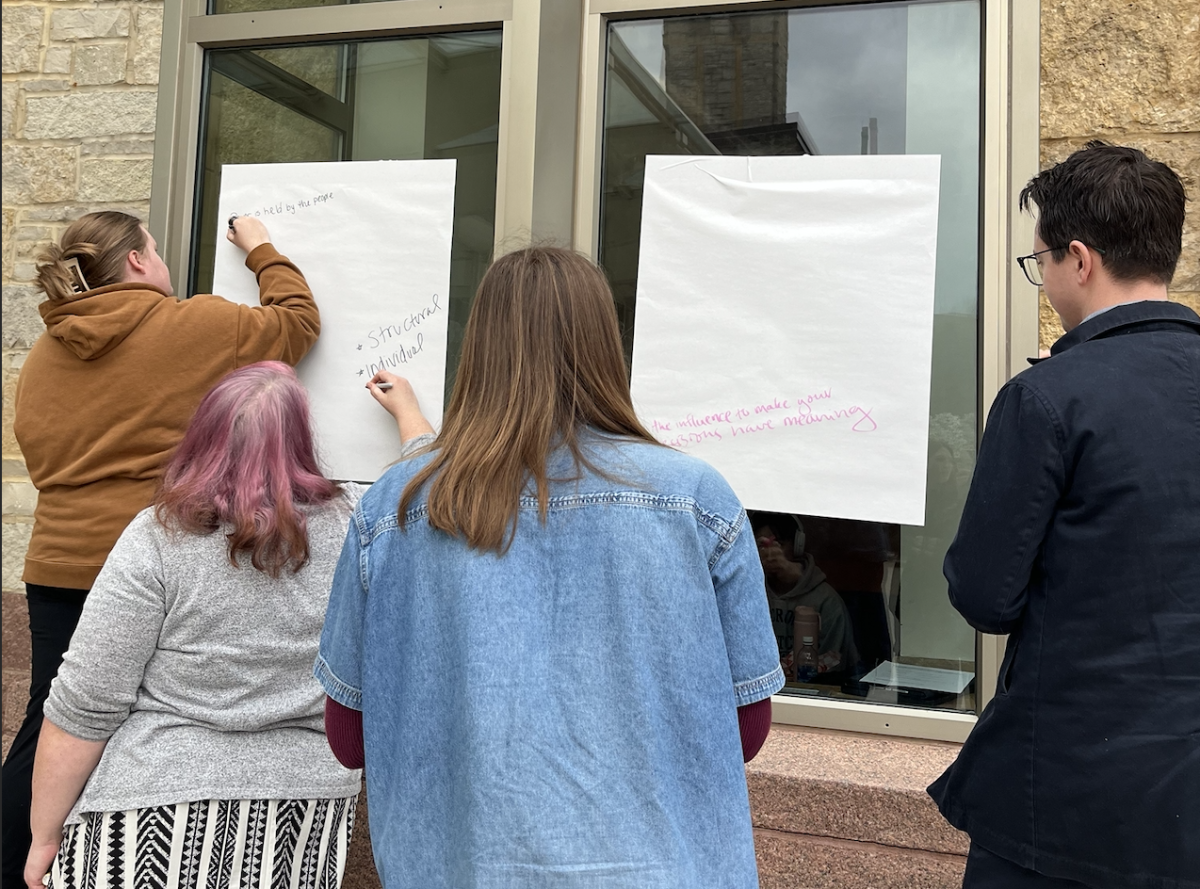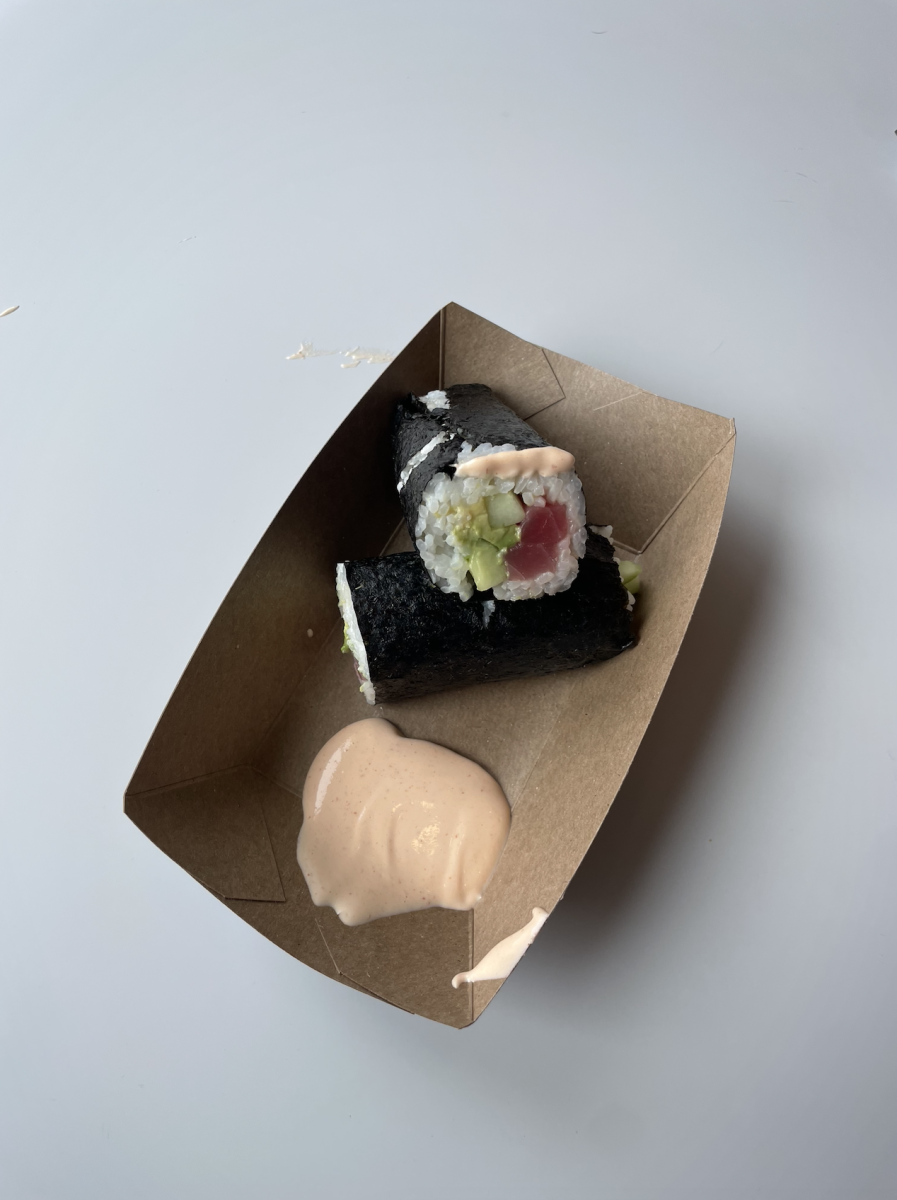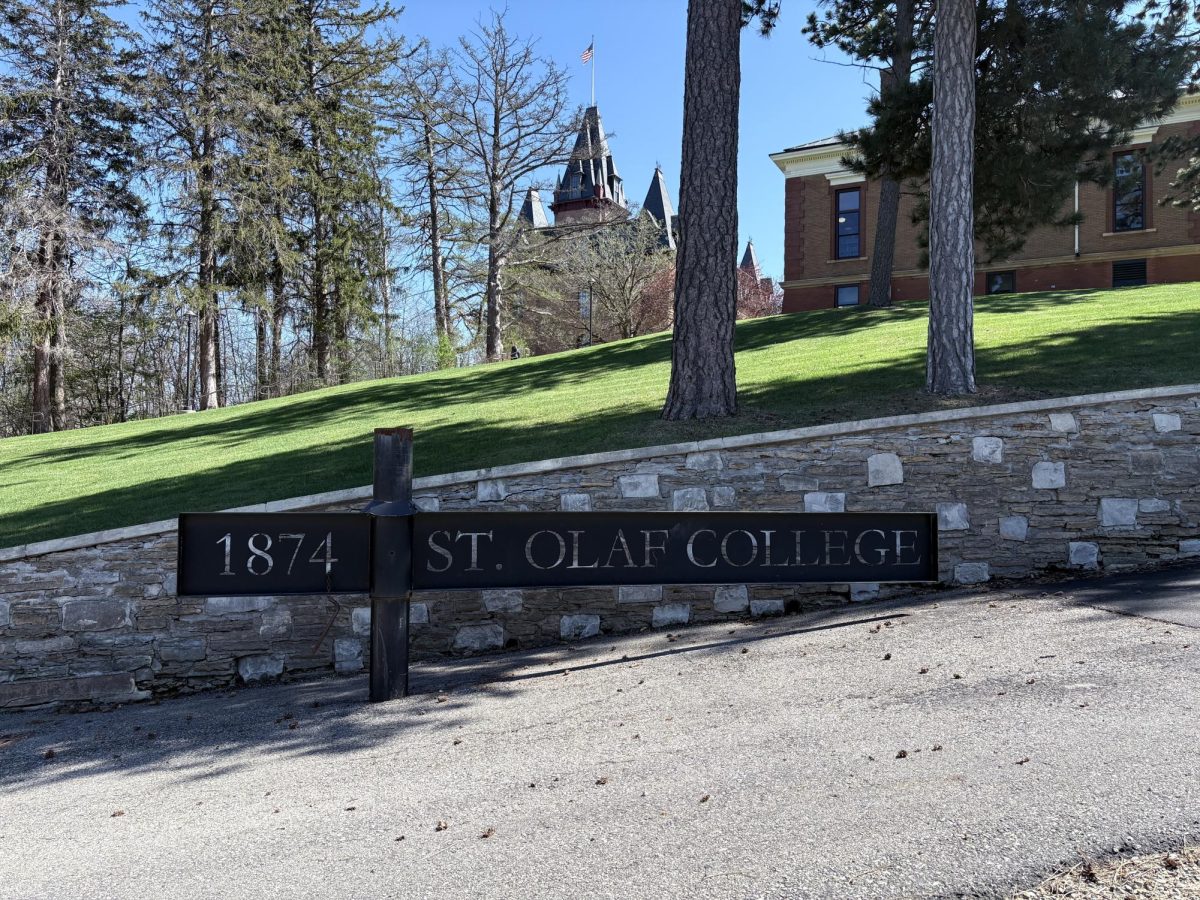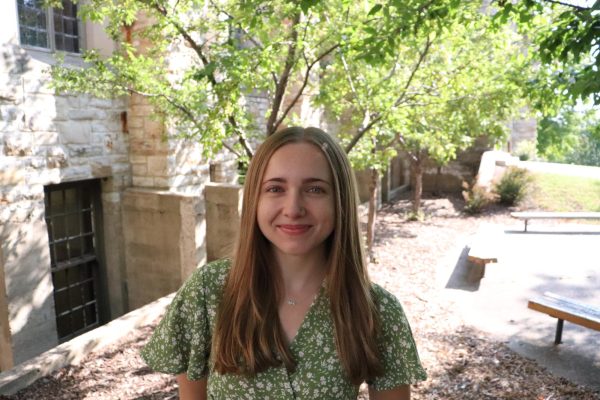“Power is a very complex subject. How do you know that you have it?”
This question was one of many posed by Assistant Professor of Race, Ethnic, Gender, and Sexuality Studies Lau Malaver that students, faculty, and staff pondered during community time on Thursday, Apr. 24 at a Teach Out held on Buntrock Plaza. Malaver, Assistant Professor of History Averill Earls, and Assistant Professor of Biology and Environmental Studies Jake Grossman were part of the faculty group who organized the Teach Out, which is part of a larger effort to foster solidarity between students, faculty, and staff and bridge power imbalances at St. Olaf.
“A group of us, who are faculty, felt that in response to the extreme and concerning political situation in the country, something very important that we could do was to share some of our critical perspectives on both what is happening and how to respond to it with students in a way that is explicitly outside of the classroom,” Grossman said.
The event started at 11:30am with large Post-it notes stuck to the windows outside of the Cage. Malaver asked attendees to define what “power” means to them and write those definitions on the Post-its. Then, attendees were given print-outs of St. Olaf’s hierarchical structure, and the group discussed how that structure connected to broader definitions of power. Malaver gave a short lecture about where people can find power in their lives and how to effectively organize communities to fight for their rights. Malaver then asked attendees to break out into small groups to address five questions: “Who am I?” “Who are my people?” “What do we want? “What are we building?” and “Are we ready to contend for power and create the world we want to live in?”
With the remaining time, there was space for large-group discussion about those questions and about attendees’ concerns for the future. Throughout the Teach Out, Malaver pulled inspiration from three books: “The Reorder of Things: The University and Its Pedagogies of Minority Difference” by Roderick A. Ferguson, “Represent and Destroy: Rationalizing Violence in the New Racial Capitalism” by Jodi Melamed, and “Unapologetic: A Black, Queer, and Feminist Mandate for Radical Movements” by Charlene Carruthers.
This is the third event that the faculty group has hosted. The first event was a faculty-staff social at the Ole Store, and the second one was a session on unpacking the current news cycle and media landscape, both of which inspired the Teach Out to provide more space to engage in discourse.
“We didn’t ask for permission from anyone,” Earls said. “We created a QR-code to a Google Form, shared that at a faculty meeting, and now we have a growing mailing list. We’re thinking sort of guerilla-style sharing this QR-code with whoever wants to join. We’ll be hosting these pop-up events, informal opportunities to talk with each other, socialize, and make action plans for what we can do within the constraints of the world we’re living in.”
The Teach Out was intentionally held outside to encourage passerbyers to join in. By the end of the hour-long session, the amount of people present had doubled from what it was at the beginning.
“I feel very moved by the fact that we could even meet and engage,” Malaver said. “There’s a lot of work and labor that goes into this, but more than anything, whether one person shows up or a hundred, it is about the moment in time. It was powerful to have done this.”
The faculty group hopes that actions like the Teach Out create spaces for everyone in the St. Olaf community — students, faculty, and staff — to connect and take action on issues they care about.
“I want to be mindful of the language and encourage the term ‘action’ because ‘event’ can presume an ending that is bracketed in a particular moment in time,” Malaver said. “We are actively working towards a continuation. A continuation requires that we establish some sort of foundation. We all have that already in our personal lives, but bringing it together is when we start to build something.”
The foundation being built is meant to last into the 2025-2026 academic year.
“Across institutions of higher education in the United States, there’s a commonly-held belief that when students are not being compliant, all you have to do is get to the end of spring semester, and then everyone goes their own ways for the summer and forgets about it,” Grossman said. “Even if it does feel like we’re hurtling towards break, this is also a foundation and the beginning of a conversation that will continue when we’re all together again.”




